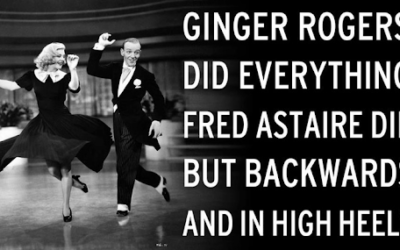Back in the old days, companies did branding and people did leading. Not so today. Now-a-days if you want to get into, or stay in, leadership and other positions of influence you must have personal branding. In our overwhelmed world, brands – both personal and commercial – consolidate the information consumers, clients and hiring committees need to know about us and our products into intuitively understandable packages that are memorable and valuable (or not). To make things more confusing, because commercial branding is more important in our noisy marketplace, leaders who never needed to know anything about branding before – CFOs and VPs of Engineering for example – today must be conversant in how branding effects their careers as well as companies.
If you’re not careful in the all this brand happiness, you might accidentally start trying to brand yourself like a bar of soap or brand your company’s bar of soap like a personality. While there’s a little value in both those approaches, beware the differences or you’ll drive away two markets at once.
What do Personal Branding and Commercial Branding Have In Common?
Even in the olden times, we had “personal branding” but it was called something else; it was called “reputation.” Products and companies have reputations too, and in this truism is the common ground between our professional identities and the widgets and thingamajigs we work so hard to profit from.
Branding can be hard to grasp because it doesn’t have it’s own line item in the financials. Even though you can do market research to try to quantify its equity, it’s still hard to prove a brand’s value because you can’t scientifically test the alternative to your brand (i.e., your market value without your brand/reputation.) All very wishy-washy, but in the valuation business at least, there are multiples for brand equity and several public indices for trying to quantify it.
The wishy-washiness is unavoidable, however, because the fact is, you don’t control your brand equity, your audience does. At the end of the day, a brand isn’t what you mean it to be, it’s what those who interact with it believe, feel and experience when they deal with the branded thing (you and the soap). All you control is what that you present to them.
This is the key to all branding, tall and small. Brands are successful when they stand for something meaningful to their audience and are consistent in this meaning. They have soul, which makes them trustworthy and believable.
That’s it. That’s the secret sauce. Learn this and you and your soap will profit from a strong brand.
How is your personal branding different from your soap’s brand?
To stop at that commonality would be to make the mistake too many leaders do. Having spent over fifteen years in marketing, and branded any number of commercial products and services, I can tell you that the most frequent branding mistake executives make is to equate their logo with their brand. Soap sales go south and the CEO starts casting about for a new logo and new messaging, crying, “the market just doesn’t understand us.” She or he turns to the marketing chief and tosses some money on the table to hire a big firm to come up with a magic color splotch, a new soap box and a new web site. Sometimes this is too little, too late. Quite often, the market understands better than the leadership that the soap has lost its way. It’s lost its meaning and its soul.
And why shouldn’t it? Soap has no soul. A product’s only meaning is the meaning we give it. A company, a product, a business doesn’t have a soul. But people do. People choose what we stand for and what our businesses and products stand for as well. Aligned in what we stand for, we collectively give power to our brands, through the culture we create with our many decisions and our personal behavior. Misaligned, we throw money at color splotches and deprive the people who give meaning to the brand the chance to be associated with something powerful and bigger than themselves.
The difference between you and the soap you sell is that you choose what you stand for. The soap can only ever be the soap. You, by contrast, can and will be many things through the course of your life and your career. You can and will stand for many things. Good leaders know this, and good companies want this in their leaders. They want their leaders to stand for something more than soap.
The question is, what do you stand for and do you take that stand consciously and consistently? How does your soul lead you in leading your company? How does your most fundamental uniqueness contribute meaning to your life and your business? These are hard questions to answer even for the most self-aware (and the best leaders are self-aware!) I encourage you to contemplate this until you can take a considered stand for yourself and for your soap. I invite you to take the personal leadership journey into your most authentic self, and emerge with the clarity that allows you to craft your personal brand so that it becomes the power behind your success, no matter how many brands of soap you stand for over the course of your career.
This article originally appeared in Smartblogs on Leadership.
Take charge of your career development to get the job that supports your work and your life. Check out the tools and resources in the InPower Coaching Career Center.
Personal Brand Coaching
Free Webinar
How do you attract opportunities to you before you have to go looking for them? The solution is simple–
find meaning in your work, target your next opportunity with intention and
share your “true you” personal brand story with everyone you meet!
We’ll show you how.







